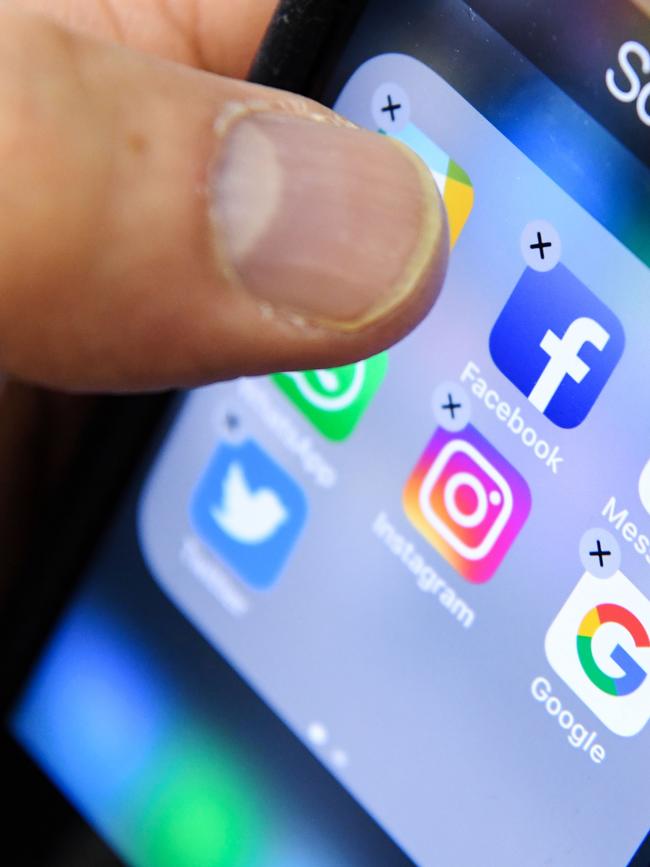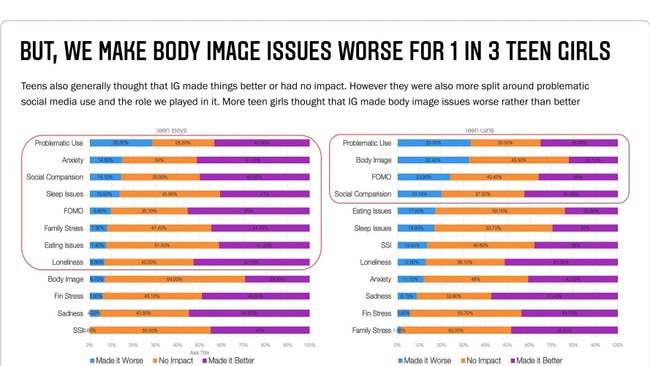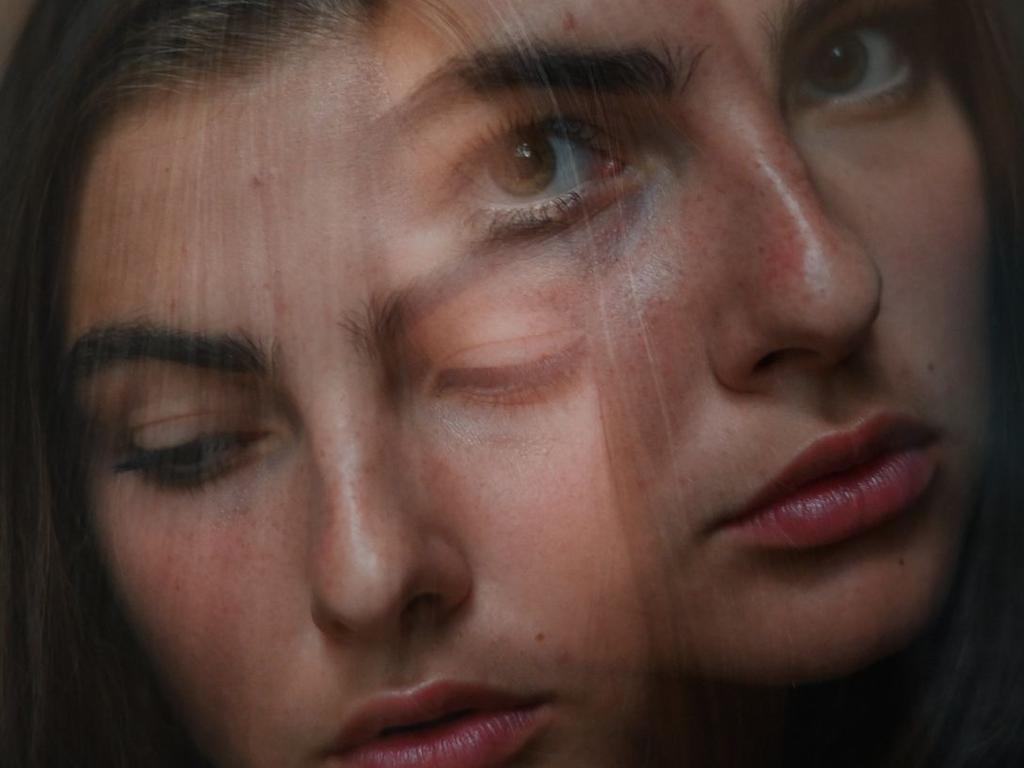Instagram ‘simply not toxic’ for teen girls, tech giant says
Instagram has released secretive internal research it claims shows it helps young women grappling with depression and eating disorders.

Instagram has rebutted claims it is toxic for teenage girls, saying internal research actually shows the platform helps young women who are grappling with anxiety, depression and eating disorders.
Head of Research Pratiti Raychoudhury said in a blog post published on Monday research uncovered by the Wall Street Journal only incorporated views from 40 young women and was designed to capture their most negative views about the social media platform.
“It is simply not accurate that this research demonstrates Instagram is ‘toxic’ for teen girls,” the post read.
“The research actually demonstrated that many teens we heard from feel that using Instagram helps them when they are struggling with the kinds of hard moments and issues teenagers have always faced.”

For the past three years, Instagram — which is owned by Facebook — has been conducting studies they called a “teen mental health deep dive”.
Some of the research which was published by the Wall Street Journal repeatedly found the photo sharing platform was harmful to teenagers, particularly young women.
One presentation posted to an internal message board found 32 per cent of teenage girls reported Instagram made them feel worse about their bodies if they were already insecure about them, according to the Journal.
Another read: “We make body image issues worse for one in three teen girls.”
Among British users who felt suicidal, 13 per cent attributed their feelings to Instagram. Six per cent of US users traced the desire to kill themselves to Instagram, one presentation showed.
But on Monday, the social media giant denied they hid the research findings or that they were surprising.
Mr Raychoudhury said in the post the worst possible results were highlighted in the slides so the company could “proactively identify where we can improve”.
One presentation slide which was released by Instagram reported how the platform made young girls and boys feel about particular issues, including eating issues, loneliness, anxiety and sadness.

“On 11 of the 12 issues in the slide … teenage girls who said they experienced these challenges were more likely to say that Instagram made these issues bettervs. worse,” the post read.
“The one exception was body image.
“And, among those same girls who said they were struggling with body image issues, 22% said that using Instagram made them feel better about their body image issues and 45.5% said that Instagram didn’t make it either better or worse.”
Another claim made by the Journal that teenagers blame Instagram for increases in anxiety and depression rates was rebutted.
“This finding comes from a set of focus groups of a small sample of 40 teenage Instagram users in the US and UK who struggle with body image, self-esteem, negative mood and/or other issues,” the post read.
“What the Journal left out was another key finding from the same study: that the same teenage users say the overall effects of Instagram are positive for them.
“Suggesting that Instagram is toxic for teens is simply not backed up by the facts.”
It came after eSafety Commissioner Julie Inman Grant held a meeting with Facebook executives last week in part to discuss the research published in the Journal.
“Social media companies can do much more to ensure that safety measures are built into platforms from the start, particularly when it comes to identifying and restricting predatory behaviour from occurring,” she said.
“Having been on the inside of the tech industry for a long time, I am aware that fundamental research and work to study behaviour is undertaken. It is what the leadership of a given company decides to do with that information that is important – do they sweep it under the carpet, or do they react and seek to address it?”






